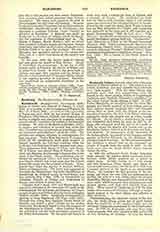

Karnkowski (KARNCOVIUS), STANISLAW, Archbishop of Gnesen and Primate of Poland, b. about 1526; d. at Lowicz, in the Government of Warsaw, May 25 (al., June 8), 1603. As early as 1563 (according to Gams not until 1568) he was named Bishop of Wlozlawsk (Wladislavia, Kalisch), and rendered great service to religion and education by founding, besides several schools, a seminary for priests in his episcopal residence. By order of the Synod of Petrikau (1577), he made a new collection of synodal laws under the title “Constitutiones synodorum metropolitanie ecclesim Gnesnensis provincialium” (Krakow, 1579). His political and religious influence in contemporary Poland was great. Under King Sigismund II Augustus (1548-72) the Reformation made great progress in Poland, especially the Calvinist teaching, while the Lutherans and Socinians bitterly opposed each other. When Sigismund died, Henry of Valois, later Henry III of France, was elected King of Poland. On his entry into Meseritz, Karnkowski welcomed him in the name of the Polish estates. The archbishop also attended the coronation (1574), and tried to keep the new king in Poland, but in the same year the French throne fell vacant and he returned to France. Karnkowski then urged the election of Stephen Bathori, Prince of Transylvania. The latter was suspected of favoring the Reformation, but under the influence of Karnkowski he declared openly for Catholicism, and was crowned king May 1, 1576, by Karnkowski, as Uchafiski, Primate of Poland and Archbishop of Gnesen, had refused to crown him.
Uchafiski died April 5, 1581, and Karnkowski was named his successor in the same year (April 21) in the archiepiscopal See of Gnesen and Primacy of Poland; as such, he governed Poland after the death of Stephen Bathori (December 12, 1586). Eventually he succeeded in electing as king Sigismund III Vasa (1587-1632). Through this young king, formerly Crown Prince of Sweden, and reared a good Catholic by his mother Katharina, Karnkowski hoped to stay the progress of the Reformation in Poland. After Cardinal Hosius, the archbishop was the most prominent opponent of the Polish Reformation. He favored the Jesuits in every way, built a college for them at Kalisch, and a seminary at Gnesen. He established an institute for twelve noble students, which is still extant, under the direction of the cathedral chapter of Gnesen. It was he who urged the Jesuit Jacob Wujek to translate the Holy Scriptures into Polish; this translation was approved by the pope and is still regarded as a classic (Sommervogel, “Bibl. de la C. de J.”, VIII, 1234 sq.). Karnkowski wrote several important works, mostly theological; among them are: “Eucharistia”, forty discourses in Polish on the Blessed Sacrament (Krakow, 1602); Polish sermons on the Messias or the Redemption (Krakow, 1597); “De jure provinciali terrarum civitatumque Prussiae” (Krakow, 1574); “Liber epistolarum familiariumet illustrium virorum” (Krakow, 1584). He is buried in the Jesuit church at Kalisch.
GREGOR REINHOLD

